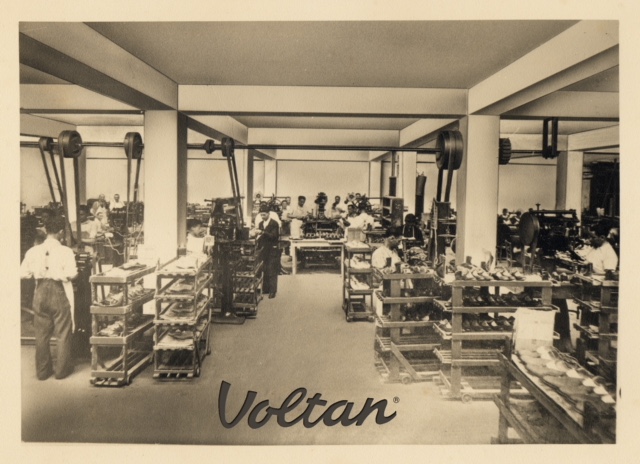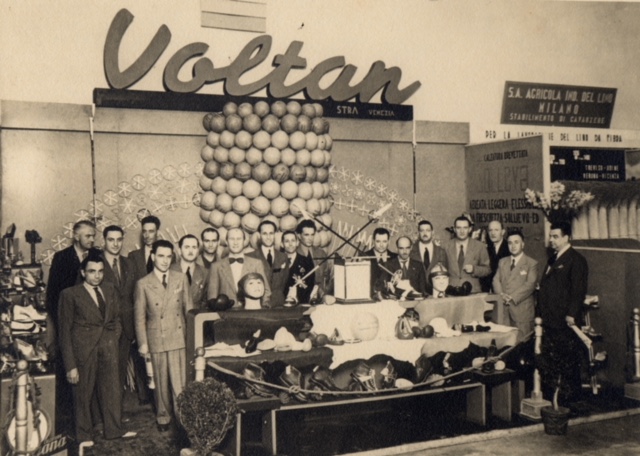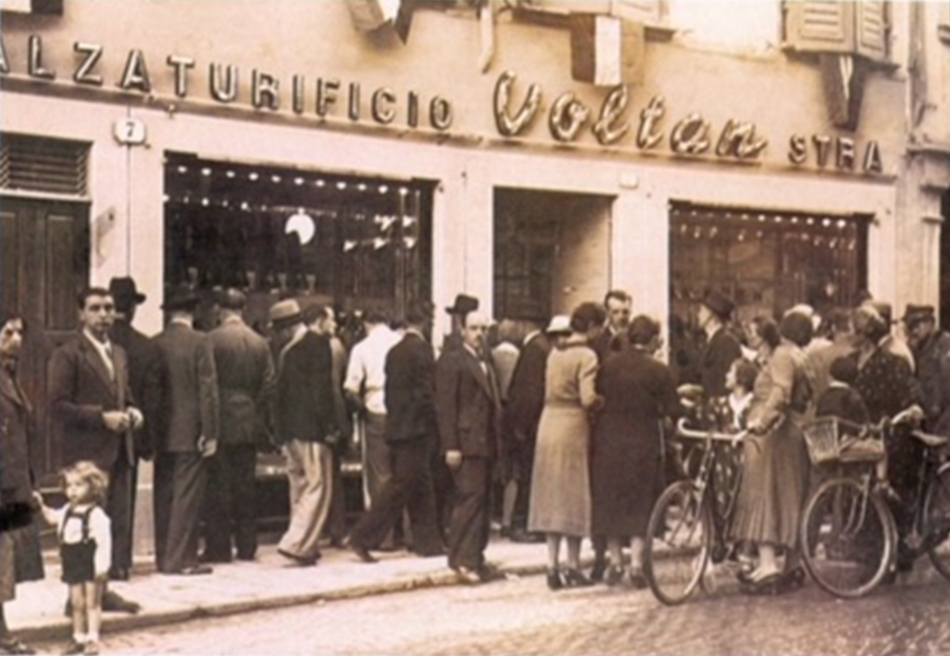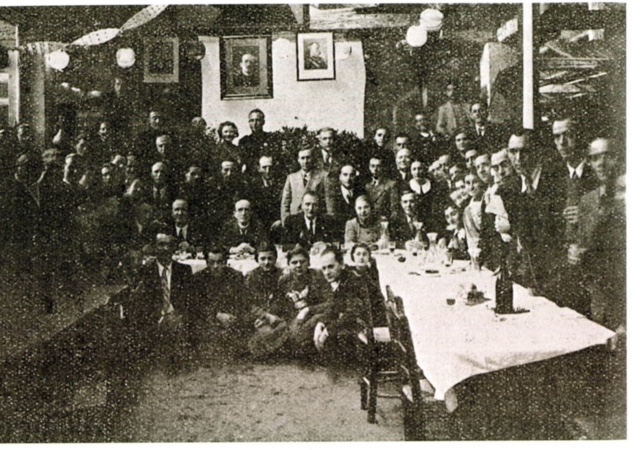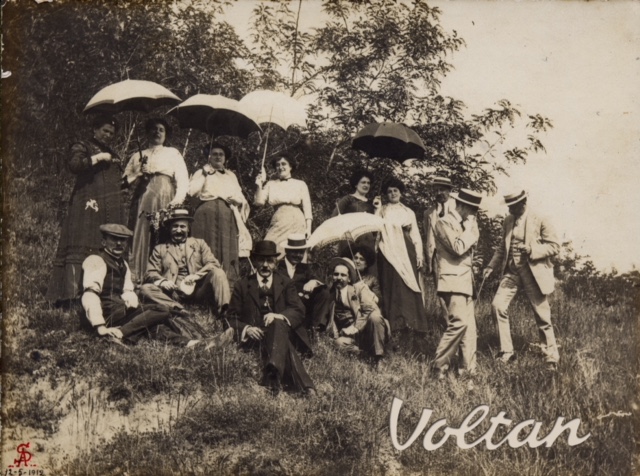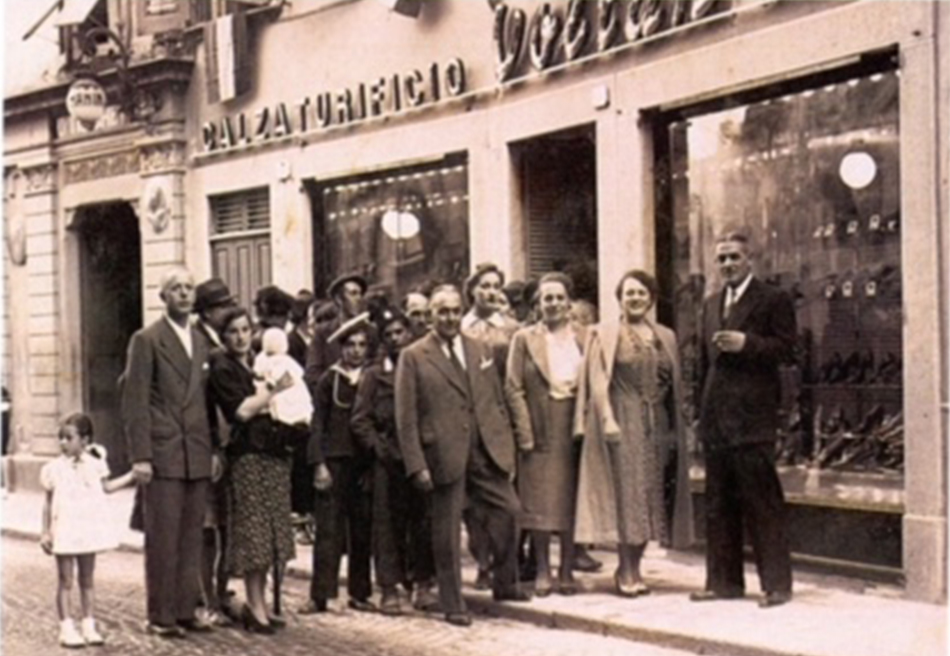

From the Brenta Riviera to the United States
Luigi Voltan
A brave and strong-willed young man
At the end of the 19th century, Stra was an agricultural country heavily hit by the agrarian crisis. The only alternative to unemployment was emigration.
Luigi Voltan for his future looks far beyond the Atlantic to the American dream.
So at the age of fifteen he embarked for the United States and landed in elegant Boston where he worked in a shoe factory and came into contact with mechanized production.
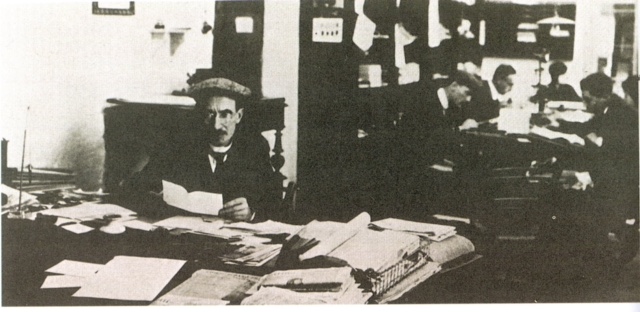
The intuition that changes the footwear world
A new production
When we say: ''make a virtue of necessity''
It takes very little for him to understand what positive repercussions “transporting” this new way of working in Italy can have. So, he asks his owner to sell him some used machinery and returns to Stra armed with this strange technological baggage. At the age of 25, in 1898, he founded the first “American” shoe factory which, at the beginning, produced only cheap footwear and military boots.
Style, elegance and quality
THE BREAKTHROUGH TO LUXURY
A touch of class for a comfortable shoe
The turning point towards the luxury segment in the Voltan household dates back to the second post-war period: the company, led by Emanuele, son of the founder, and then by Giovanni, grandson of the same, began to produce exclusively high-end women’s shoes in fine leathers. A single line still called “Voltan since 1898” which has the peculiar feature of the combination of elegance and comfort.
Between past, present and future
VOLTAN, TODAY
The search for innovation with a look at tradition
Today the company led by great-grandchildren Emanuele and Marco continues to focus on family identity as evidenced by the choice to remain in the 3,000 square meters of the historic company and to design the collections and design the models independently without realizing the ideas of others. Finally, it must be said that if industrialization was the engine of the birth of this company, the surplus of quality that only manual labor can give has not been forgotten. A fair compromise between tradition and innovation.
